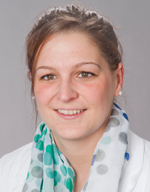TRP X5 Pathophysiology of the Antiphospholipid Syndrome
Funding period: 01.04.2016 – 31.03.2019Project Summary
We have investigated for several years the mechanisms by which antiphospholipid antibodies (aPL) cause the clinical manifestations of the antiphospholipid syndrome (APS), the most common acquired thrombophilia. One major recent finding was the detection that aPL can activate an endosomal NADPH oxidase (NOX). This activation requires that aPL are internalized into the endosome/ lysosome. Subsequently several procoagulant and proinflammatory pathways are activated including expression of tissue factor (1), toll like receptor (TLR) 7/8 (2), and the NLRP3 inflammasome. Furthermore, aPL can induce rapid translocation of endosomal TLRs from the endoplasmatic reticulum (ER) to the endosome (2). Currently, nothing is known regarding the mechanisms how internalized aPL lead to activation of NOX. Our major hypothesis is that interaction of aPL with lysobisphosphatidic acid (LBPA) which is a major phospholipid within endosomes/lysosomes is critical for the induction of NOX. It is planned to systematically analyze potential mechanisms involved in NOX activation. This will be achieved by using siRNA to inhibit expression of specific genes involved in LBPA homeostasis, by using pharmacologic inhibitors of potential candidates that may be involved in NOX activation, and by cells deficient in genes that may be relevant for activation of endosomal NOX. The second question that will be addressed is related to the translocation of TLRs from the ER to the endosome. We have shown that endosomal NOX is not only needed for translocation of TLRs in response to aPL but also in response to TLR ligands. Therefore, the mechanisms underlying this effect of endosomal NOX will be analyzed in more detail. In a first step we will try to identify target proteins that are oxidized after activation of NOX. An understanding of the mechanisms involved in NOX activation will provide novel approaches to the treatment of the APS.
Principle Investigators

Professor Karl Lackner, MD
Director of the Institute of Clinical Chemistry and Laboratory Medicine
Staff
References
- Müller-Calleja N, Rossmann H, Müller C, Wild P, Blankenberg S, Pfeiffer N, Binder H, Beutel ME, Manukyan D, Zeller T, Lackner KJ (2016) Antiphospholipid antibodies in a large population-based cohort: genome-wide associations and effects on monocyte gene expression. Thrombosis and haemostasis 116: 115-23
- Müller-Calleja N, Kohler A, Siebald B, Canisius A, Orning C, Radsak M, Stein P, Monnikes R, Lackner KJ (2015) Cofactor-independent antiphospholipid antibodies activate the NLRP3-inflammasome via endosomal NADPH-oxidase: implications for the antiphospholipid syndrome. Thrombosis and haemostasis 113: 1071-83
- Manukyan D, Müller-Calleja N, Jäckel S, Luchmann K, Monnikes R, Kiouptsi K, Reinhardt C, Jurk K, Walter U, Lackner KJ (2016) Cofactor-independent human antiphospholipid antibodies induce venous thrombosis in mice. Journal of thrombosis and haemostasis 14: 1011-20

